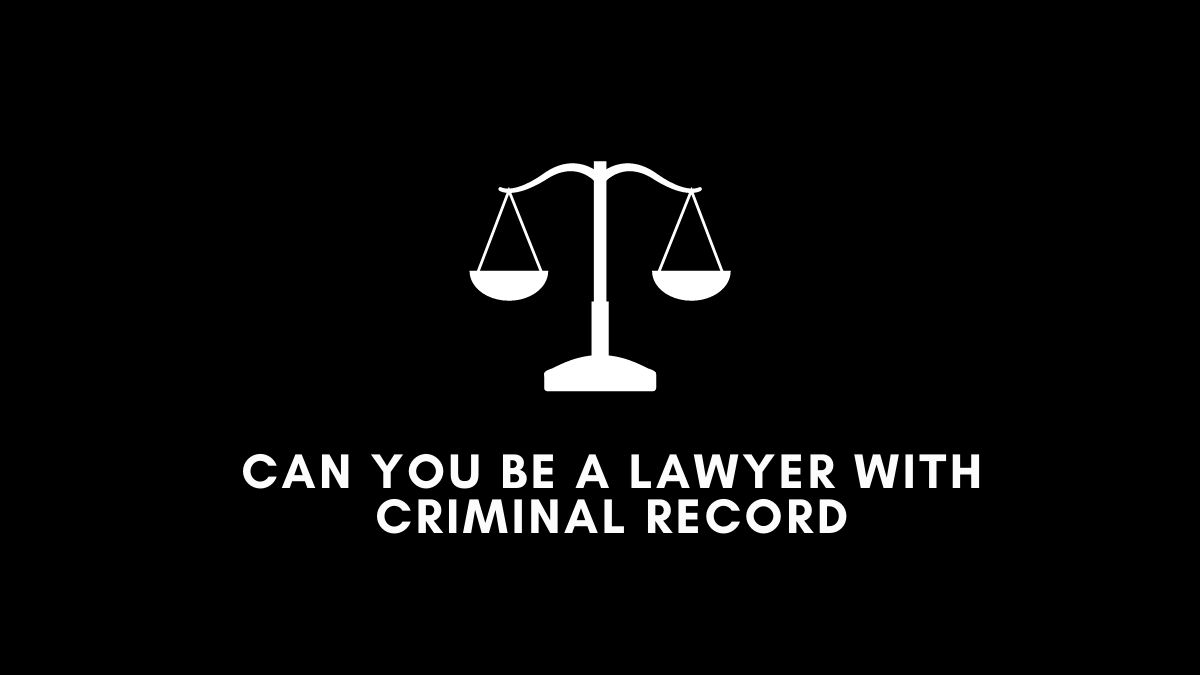The Impact of a Criminal Record on Becoming a Lawyer
A criminal record can have a significant impact on an individual’s ability to become a lawyer. While a criminal conviction does not automatically disqualify someone from becoming a lawyer, it can make the process more difficult and can lead to additional scrutiny from legal professional organizations.
It is important to note that the laws and regulations vary depending on the jurisdiction, and some states have stricter requirements than others. However, in general, a criminal conviction can raise concerns about an applicant’s character and fitness to practice law, which can be considered in the admissions process.
How Criminal Records are Considered in the Admissions Process
When applying to become a lawyer, an applicant’s criminal record will be considered by the legal professional organizations responsible for admissions. The process typically includes a thorough background check, and the applicant may be required to disclose any criminal convictions on their application.
The legal professional organizations will consider the nature and severity of the criminal conviction, as well as the applicant’s actions since the conviction, when determining the applicant’s character and fitness to practice law. Factors such as the applicant’s remorse, rehabilitation, and efforts to make amends for the crime may be taken into account.
Table:
| Jurisdiction | Disclosure of Criminal Records | Consideration of Criminal Records |
|---|---|---|
| State A | Required | Strict |
| State B | Required | Less Strict |
| State C | Not Required | Not Considered |
Can you be a lawyer with a criminal record?
A criminal record does not automatically disqualify someone from becoming a lawyer, but it can make the process more difficult and can lead to additional scrutiny from legal professional organizations. It depends on the jurisdiction and the nature and severity of the criminal conviction.
What is considered when a legal professional organization is reviewing an applicant with a criminal record?
The legal professional organizations will consider the nature and severity of the criminal conviction, as well as the applicant’s actions since the conviction, when determining the applicant’s character and fitness to practice law. Factors such as the applicant’s remorse, rehabilitation, and efforts to make amends for the crime may be taken into account.
Are criminal records disclosed in all jurisdictions during the application process?
The laws and regulations vary depending on the jurisdiction, and some states have stricter requirements than others. However, in general, a criminal conviction can raise concerns about an applicant’s character and fitness to practice law, which can be considered in the admissions process
Are criminal records disclosed in all jurisdictions during the application process?
The laws and regulations vary depending on the jurisdiction, and some states have stricter requirements than others. However, in general, a criminal conviction can raise concerns about an applicant’s character and fitness to practice law, which can be considered in the admissions process.
Is there a way to appeal or challenge the decision of legal professional organization if an applicant is denied based on a criminal record?
Depending on the jurisdiction, there may be options for appeal or challenge the decision of legal professional organization. It is important to consult with an attorney or legal professional to understand the specific laws and regulations in your jurisdiction.
